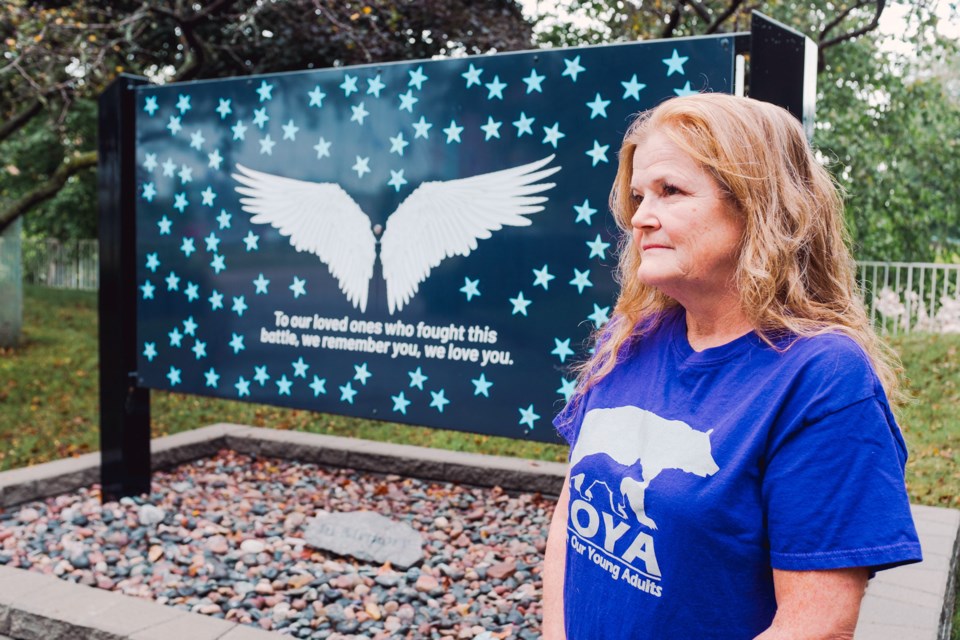As a heat warning for Sault Ste. Marie continues for a third day, agencies who deal with the homeless population in the city are asking for understanding and compassion.
SOYA, which assists people from its Gore Street depot, is one street-level organization that helps people experiencing homelessness and other vulnerable populations. Founder Connie Raynor-Elliott said it is a challenge for SOYA to keep up with the demand for water and offering shelter when the heat rises on the streets.
"They're saying this summer's going to be really really hot, so we're gonna have people with heat exhaustion and dehydration," said Raynor-Elliott.
Anyone can help, said Raynor-Elliott, by keeping extra water bottles and baseball caps on hand to distribute to people who look like they could use some hydration and protection from the sun. The organization will also take donations of water, protective clothing, sunscreen, etc. for distribution to those in need.
Public water fountains used to be much more common, said Raynor-Elliott, but are now increasingly hard to find.
"Where are these public fountains? Do we still have public fountains, or did they all get turned off because of COVID?" said Raynor-Elliott.
A list of cooling spots can be found on the City of Sault Ste. Marie's web site. They include the James L. McIntyre Centennial Library, Bellevue Park Splash Pad, John Rhodes Centre, Northern Community Centre and the Community Resource Centre, among others.
Exposure to extreme heat and humidity can lead to heat illness or injury including heat stroke, heat exhaustion, heat fainting, heat edema, heat rash and heat cramps, said Nicole Lindahl, manager of Emergency Preparedness and Response for Algoma Public Health.
Lindahl said older adults and individuals and communities experiencing social disadvantage can be at a higher risk for health-related impacts from heat events. She said those groups include those experiencing low income, those who are underhoused and those living alone.
Symptoms of heat illness can include dizziness or fainting, nausea or vomiting, headache, rapid breathing and heartbeat, extreme thirst and decreased urination with unusually dark yellow urine.
Helping Hands president Robert Peace said his organization also assists the vulnerable population in the city by offering a cool place to go and through distrubution of water. It will also take in donations of water and protective clothing to distribute from its Wellington Street West location.
"People can come in. We have a few chairs and people tend to just come in and browse around, sometimes for a couple of hours," said Peace.
The full news release by Algoma Public Health can be read below:
Exposure to extreme heat and humidity can lead to heat illness or injury including heat stroke, heat exhaustion, heat fainting, heat edema (swelling of hands, feet and ankles), heat rash and heat cramps (muscle cramps). Watch for symptoms of heat illness, which include dizziness or fainting, nausea or vomiting, headache, rapid breathing and heartbreak, extreme thirst, and decreased urination with unusually dark yellow urine. If you experience any of these symptoms during a heat event, immediately move to a cooler place, drink liquids, and seek medical attention. Remember water is best!
Heat stroke is a medical emergency, call 911 if you or someone you are caring for requires immediate assistance.
Groups who are at a higher-risk of health related impacts from heat events, such as older adults and individuals and communities experiencing social disadvantage, including those experiencing low income, those who are underhoused, and those living alone can be at higher risk. Remember to frequently check in on neighbours, friends, and older family members to make sure they are cool and hydrated.
Heat-related illnesses are preventable! Some tips to beat the heat include:
- Rescheduling or planning outdoor activities during cooler parts of the day.
- Wear loose-fitting, light-coloured clothing made of breathable fabric.
- Prepare meals that do not need to be cooked in an oven.
- Take cool showers or baths until you feel refreshed.
- Take a break from the heat by spending time in a cool place. This can be a tree-shaded area, swimming facility, splash pad or air-conditioned spot such as a public building, shopping mall, grocery store, or public library.
You can download the WeatherCan App to receive direct notifications of heat events.
